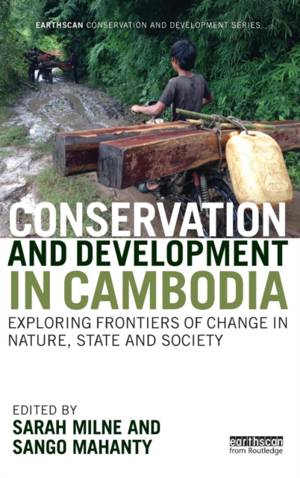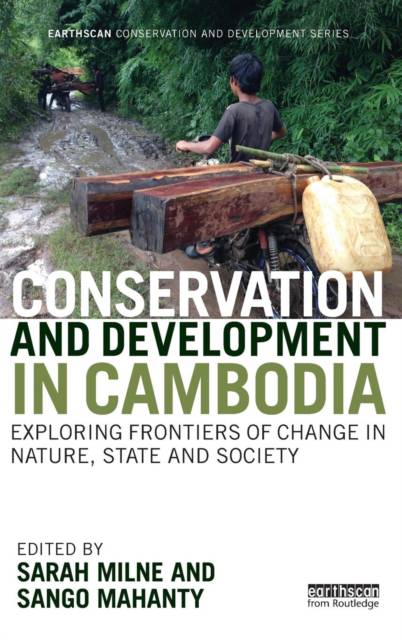
- Afhalen na 1 uur in een winkel met voorraad
- Gratis thuislevering in België vanaf € 30
- Ruim aanbod met 7 miljoen producten
- Afhalen na 1 uur in een winkel met voorraad
- Gratis thuislevering in België vanaf € 30
- Ruim aanbod met 7 miljoen producten
Conservation and Development in Cambodia
Exploring Frontiers of Change in Nature, State and Society
Omschrijving
Written by leading authorities from Australasia, Europe and North America, this book examines the dynamic conflicts and synergies between nature conservation and human development in contemporary Cambodia.
After suffering conflict and stagnation in the late twentieth century, Cambodia has experienced an economic transformation in the last decade, with growth averaging almost ten per cent per year, partly through investment from China. However this rush for development has been coupled with tremendous social and environmental change which, although positive in some aspects, has led to rising inequality and profound shifts in the condition, ownership and management of natural resources. High deforestation rates, declining fish stocks, biodiversity loss, and alienation of indigenous and rural people from their land and traditional livelihoods are now matters of increasing local and international concern.
The book explores the social and political dimensions of these environmental changes in Cambodia, and of efforts to intervene in and 'improve' current trajectories for conservation and development. It provides a compelling analysis of the connections between nature, state and society, pointing to the key role of grassroots and non-state actors in shaping Cambodia's frontiers of change. These insights will be of great interest to scholars of Southeast Asia and environment-development issues in general.
Specificaties
Betrokkenen
- Uitgeverij:
Inhoud
- Aantal bladzijden:
- 292
- Taal:
- Engels
- Reeks:
Eigenschappen
- Productcode (EAN):
- 9780415706803
- Verschijningsdatum:
- 24/03/2015
- Uitvoering:
- Hardcover
- Formaat:
- Genaaid
- Afmetingen:
- 157 mm x 231 mm
- Gewicht:
- 589 g

Alleen bij Standaard Boekhandel
Beoordelingen
We publiceren alleen reviews die voldoen aan de voorwaarden voor reviews. Bekijk onze voorwaarden voor reviews.










